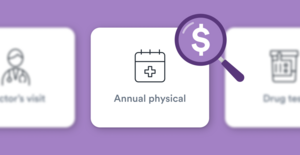Key points
- Asthma is a chronic respiratory condition, early identification of symptoms can aid in managing and preventing severe attacks.
- Early signs of asthma include frequent coughing, fatigue after exercise, wheezing, shortness of breath, and chest discomfort.
- Symptoms of an asthma attack include rapid breathing, chest pain, blue lips or fingernails, severe wheezing, and increased heart rate.
- Asthma symptoms in children include recurrent bronchitis, frequent colds, coughing, wheezing, and difficulty breathing; medical attention should be sought if symptoms worsen.

Asthma is a chronic respiratory condition that touches the lives of millions around the globe, as noted by the American Asthma and Allergy Foundation (AAAF). Recognizing its symptoms is essential for managing and preventing issues effectively. When you identify asthma symptoms early on, it enables you to take steps to ease discomfort and lower the chances of a severe asthma attack—whether it's for you or a loved one. By understanding what causes asthma and the treatment options available, both patients and caregivers can feel empowered to make better health choices. In this article, we’ll dive into the common symptoms, possible triggers and various treatment strategies, aiming to help you navigate this journey with confidence and ease.
Early symptoms of asthma in children and adults
Recognizing the early signs of asthma is really important for ensuring prompt help and successful management for both kids and adults, according to MedlinePlus. By catching it early, we can gain better control over the condition, which can prevent more serious episodes down the road. Some early symptoms of asthma that might suggest it's time to seek further assistance include:
-
Frequent cough, especially at night or during physical activity
-
Feeling very tired or fatigued during or after exercise
-
Wheezing or a whistling sound when breathing, particularly after exertion
-
Shortness of breath or difficulty breathing during routine activities
-
Tightness or discomfort in the chest, which may occur during exercise or at rest
Asthma attack symptoms
An asthma attack is a sudden worsening of asthma symptoms that can be life-threatening if not addressed promptly. MedlinePlus explains that during an attack, the airways become significantly inflamed and constricted, making it difficult to breathe. Recognizing the symptoms of an asthma attack is crucial for ensuring immediate action is taken to alleviate the situation. Here are some common symptoms that may indicate an asthma attack:
-
Very rapid breathing or difficulty catching your breath
-
Chest pain or pressure, which may feel like a heavy weight sitting on the chest
-
Blue lips or fingernails, indicating a lack of oxygen
-
Severe wheezing or coughing that does not improve with usual medications
-
Increased heart rate or feeling anxious due to difficulty breathing
Asthma symptoms in children
Asthma can manifest differently in children, and recognizing the symptoms early is essential for effective management and treatment. Children may struggle to articulate their discomfort, making it crucial for parents and caregivers to be vigilant in observing any signs of respiratory distress. Understanding the common symptoms of asthma in children can help ensure timely medical intervention and improve their overall quality of life. Here are some typical asthma symptoms to watch for in children, as explained by MedlinePlus:
-
Recurrent bronchitis or respiratory infections that seem to linger
-
Frequent colds that settle in the chest, leading to prolonged coughing
-
Coughing, especially at night or during play, which may disrupt sleep
-
Wheezing or a whistling sound during breathing, particularly after physical activity
-
Shortness of breath or difficulty breathing during routine activities
When to see a doctor
Knowing when to seek medical attention for asthma is crucial for ensuring safety and effective management of the condition. According to MedlinePlus, if you or someone you know experiences symptoms that are worsening or not responding to usual medications, it’s essential to consult a healthcare professional. Additionally, recognizing the signs of a severe asthma attack can be life-saving. If symptoms escalate to the point where breathing becomes extremely difficult, or if there is a noticeable change in skin color, such as blue lips or fingernails, immediate medical assistance should be sought.
According to MedlinePlus, you should also see a doctor if asthma symptoms frequently interfere with daily activities or if nighttime symptoms disrupt sleep. Regular check-ups can help assess the effectiveness of current treatment plans and allow for adjustments as needed. By staying proactive about asthma management and recognizing the signs that warrant medical attention, individuals can significantly reduce the risk of severe complications and improve their overall quality of life.
Urgent care near me
If you or a loved one are experiencing asthma symptoms or need immediate medical attention, don't wait—take action now! Use Solv to find urgent care facilities near you that can help you.
FAQs
What are some early symptoms of asthma in both children and adults?
Early symptoms of asthma can include frequent coughing, especially at night or during physical activity, feeling very tired or fatigued during or after exercise, wheezing or a whistling sound when breathing, shortness of breath or difficulty breathing during routine activities, and tightness or discomfort in the chest.
How can I recognize an asthma attack?
An asthma attack is characterized by a sudden worsening of asthma symptoms. These can include very rapid breathing or difficulty catching your breath, chest pain or pressure, blue lips or fingernails indicating a lack of oxygen, severe wheezing or coughing that does not improve with usual medications, and an increased heart rate or feeling anxious due to difficulty breathing.
Are asthma symptoms different in children?
Asthma can manifest differently in children. Some common symptoms in children include recurrent bronchitis or respiratory infections that seem to linger, frequent colds that settle in the chest, coughing, especially at night or during play, wheezing or a whistling sound during breathing, and shortness of breath or difficulty breathing during routine activities.
When should I seek medical attention for asthma symptoms?
If you or someone you know experiences symptoms that are worsening or not responding to usual medications, it’s essential to consult a healthcare professional. If symptoms escalate to the point where breathing becomes extremely difficult, or if there is a noticeable change in skin color, such as blue lips or fingernails, immediate medical assistance should be sought. Regular check-ups can also help assess the effectiveness of current treatment plans.
What should I do if I or a loved one are experiencing asthma symptoms?
If you or a loved one are experiencing asthma symptoms or need immediate medical attention, take action immediately. You can use resources like Solv to find urgent care facilities near you. Regular check-ups and proactive management of asthma symptoms can significantly reduce the risk of severe complications and improve overall quality of life.









